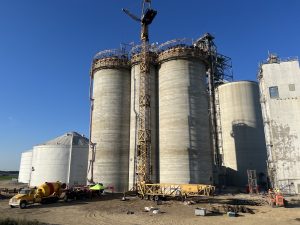The Heart of the Heartland: Exploring Iowa’s Most Common Profession


Iowa, often celebrated for its vast fields of corn and picturesque landscapes, is not just about agriculture. While it’s a common misconception that farming dominates Iowa’s job market, the reality is much more diverse. In this exploration of Iowa’s most common job, we’ll delve into the factors shaping the state’s employment landscape and how it reflects both regional characteristics and broader economic trends.
Unveiling Iowa’s Employment Scene
Contrary to popular belief, the most common job in Iowa is not in agriculture but in the healthcare sector. Specifically, registered nurses (RNs) are the most prevalent occupation in the state. This shift from traditional agricultural roles to healthcare reflects more significant national and global trends, where healthcare professions are increasingly in demand due to an aging population and advances in medical technology.
The Rise of Healthcare Jobs
The healthcare sector’s growth in Iowa mirrors a nationwide trend. This surge is driven by an aging Baby Boomer population requiring more medical care and advances in medical treatments and technology that demand a larger workforce. Registered nurses, in particular, are at the forefront of this demand. They play a critical role in patient care, working in various settings such as hospitals, clinics, and long-term care facilities.
The Role of Education and Training
The rise in healthcare jobs, especially for RNs, underscores the importance of education and training in shaping Iowa’s job market. Nursing programs in Iowa, both at community colleges and universities, have seen increased enrollment as students gravitate towards stable and well-paying healthcare careers. These programs are critical in supplying the healthcare industry with a skilled workforce, ensuring that the state’s medical needs are met.
Economic Implications
The prominence of healthcare jobs, particularly RNs, in Iowa’s job market has several economic implications. First, it indicates a shift in the state’s economic base from traditional agriculture to more service-oriented industries. This diversification helps stabilize the state’s economy against the fluctuations in agricultural markets. Furthermore, healthcare jobs often offer higher wages and better benefits than many other sectors, contributing to more excellent economic stability for Iowa’s workforce.
Beyond Nursing: Other Key Sectors
While nursing holds the top spot, it’s important to recognize other significant sectors in Iowa’s economy. Manufacturing, especially in food processing and agricultural machinery, remains a cornerstone of Iowa’s industrial landscape. Additionally, the finance and insurance sector has grown substantially, with Des Moines being a national hub for insurance companies.
Manufacturing’s Enduring Presence
Despite the growth in service jobs, manufacturing continues to be a vital part of Iowa’s economy. The state is a leading producer of agricultural machinery, reflecting its farming heritage. Food processing, another significant industry, leverages Iowa’s agricultural outputs. These manufacturing jobs contribute to the state’s exports and overall economic health.
Finance and Insurance: A Growing Field
Iowa’s finance and insurance sector, particularly in Des Moines, is another area of employment growth. The city is often called the “Hartford of the West” due to its concentration of insurance companies. This sector provides a range of jobs, from entry-level positions to high-level finance roles, adding to the diversity of Iowa’s job market.
The Impact of Technology and Automation
As with the rest of the world, technology and automation influence Iowa’s job market, in agriculture, technological advancements have led to more efficient farming practices, requiring fewer workers. In manufacturing, automation has changed the nature of many jobs, with a growing emphasis on technical skills. These changes highlight the need for ongoing education and training to keep the workforce adaptable and competitive.
Preparing for the Future
To maintain its economic vitality, Iowa must invest in education and training programs that align with these evolving industry needs. This includes university degrees, vocational training, and apprenticeships in technical fields. By doing so, Iowa can ensure its workforce is prepared for the jobs of the future, whether in healthcare, manufacturing, finance, or emerging industries.
A Diverse and Dynamic Job Market
Iowa’s most common job, registered nursing, symbolizes a broader shift in the state’s employment landscape. From its agricultural roots, Iowa has evolved into a diverse economy with significant healthcare, manufacturing, and finance roles. This evolution reflects more significant global trends and underscores the importance of education, training, and adaptability in the modern job market.
As Iowa continues to navigate these changes, its success will depend on its ability to diversify its economy, invest in its workforce, and adapt to new technologies. The state’s transformation from a predominantly agricultural economy to one with a robust and varied job market is a testament to its resilience and forward-thinking approach. For those looking to understand the heart of the American Midwest, a closer look at Iowa’s job market offers valuable insights into the challenges and opportunities facing the region today.
